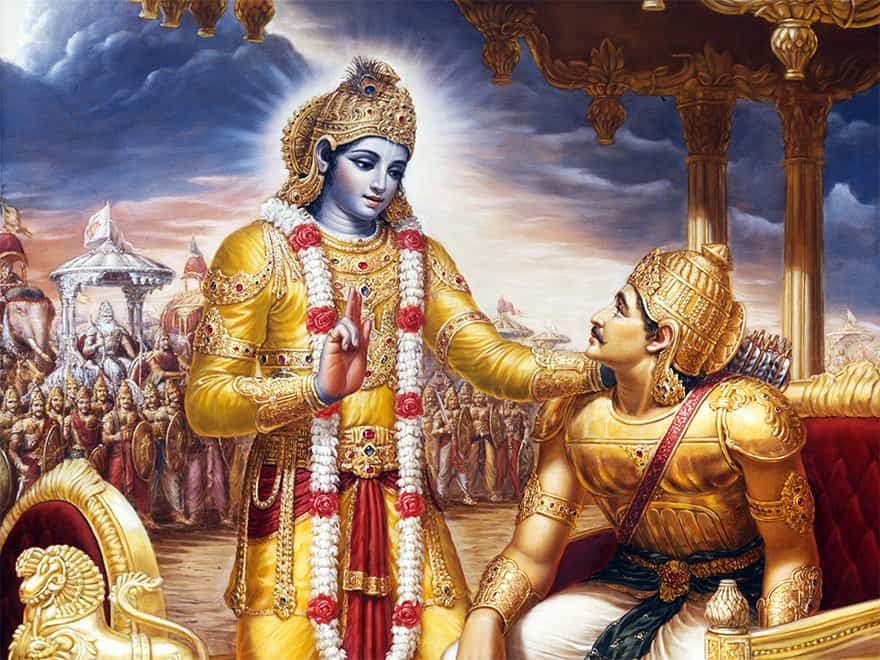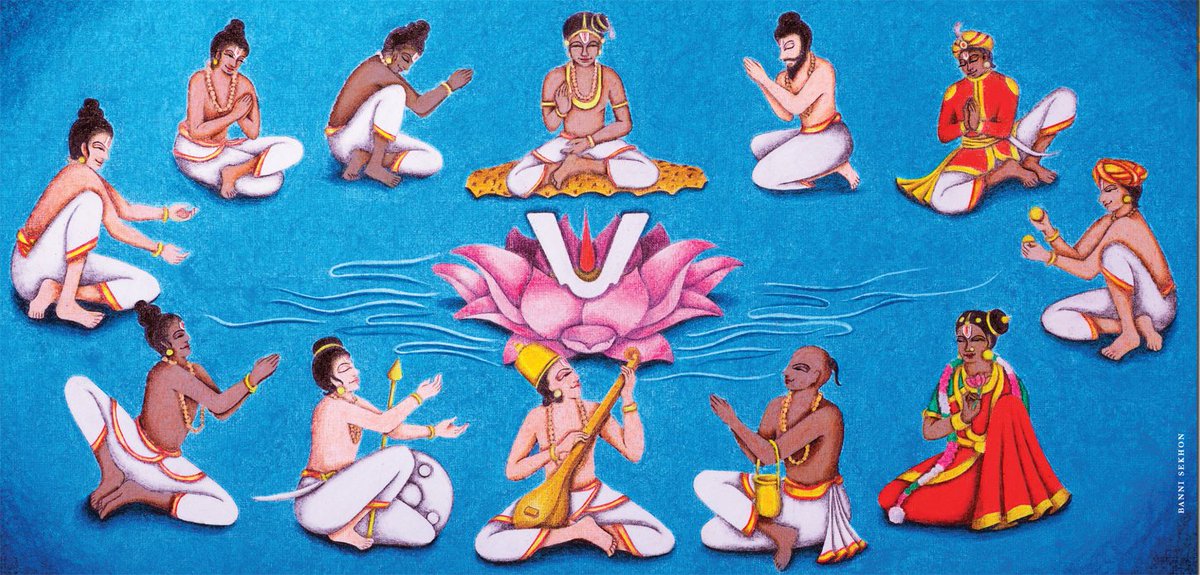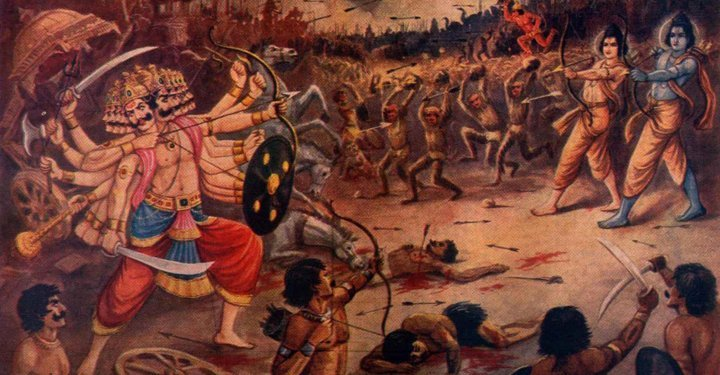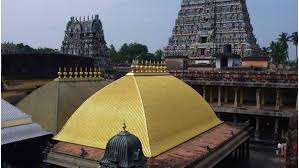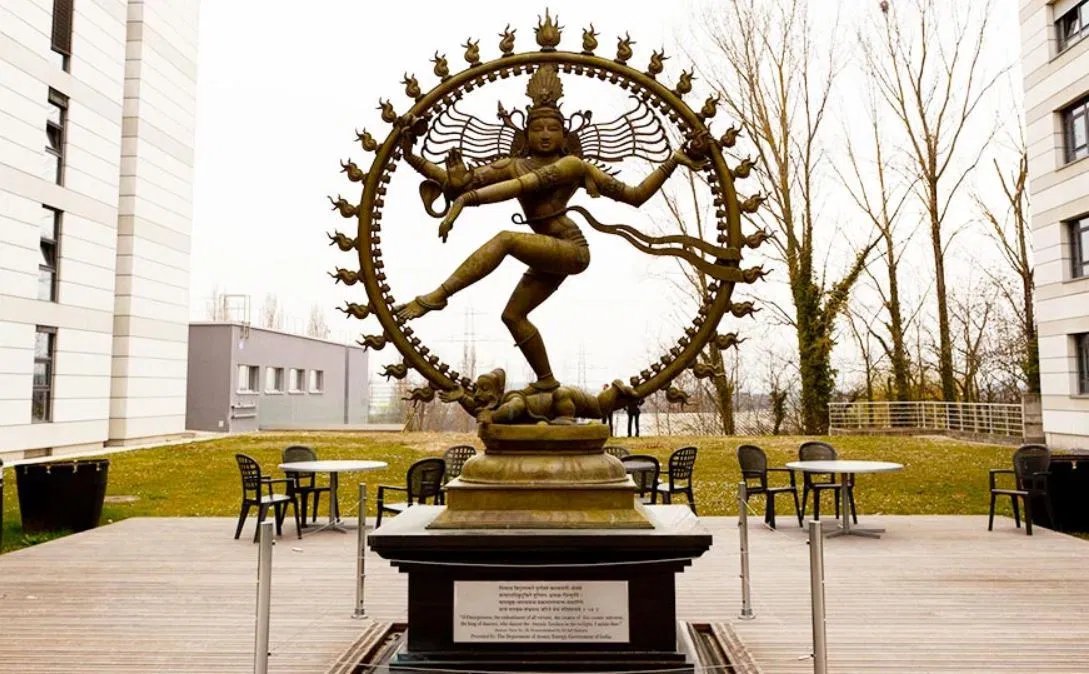
Aryabhatta's Aryabhattiyam contains several important principles of Mathematics.
It has a little over 300 slokas.
It begins with an invocation to God. #ShortThread
It has a little over 300 slokas.
It begins with an invocation to God. #ShortThread
https://twitter.com/ReginaDulanjali/status/1488210788045127683
That's the translation of the first verse of the Dasagitika.
It begins with a tribute to Brahman.
In fact, it says Aryabhatta sets forth the book only AFTER having paid reverence to Brahman.
It begins with a tribute to Brahman.
In fact, it says Aryabhatta sets forth the book only AFTER having paid reverence to Brahman.

Brahmagupta was both an heir and counterpoint to Aryabhatta's legacy (One could write a whole book on Brahmagupta's criticism of Aryabhatta).
His seminal work Brahmasputa Siddhanta speaks about positive numbers, negative numbers, role of Zero, and Brahmagupta's Theorem(AF=FD)
His seminal work Brahmasputa Siddhanta speaks about positive numbers, negative numbers, role of Zero, and Brahmagupta's Theorem(AF=FD)

How does Brahmagupta choose to open his Brahmasputa Siddhanta?
Thus:
The first verse is an invocation to Mahadeva.
He repeats it in his other work, Khandaka Adyaka.
Thus:
The first verse is an invocation to Mahadeva.
He repeats it in his other work, Khandaka Adyaka.

Brahmagupta's Khandaka Adyaka begins with a reference to the four Vedas, and then an invocation to Mahadeva. 

Moving to the famous Varahamihira, whose Brihat Samhita and Pancha Siddhantika were compilations of earlier works with comments of his own.
The opening lines of both works.

The opening lines of both works.
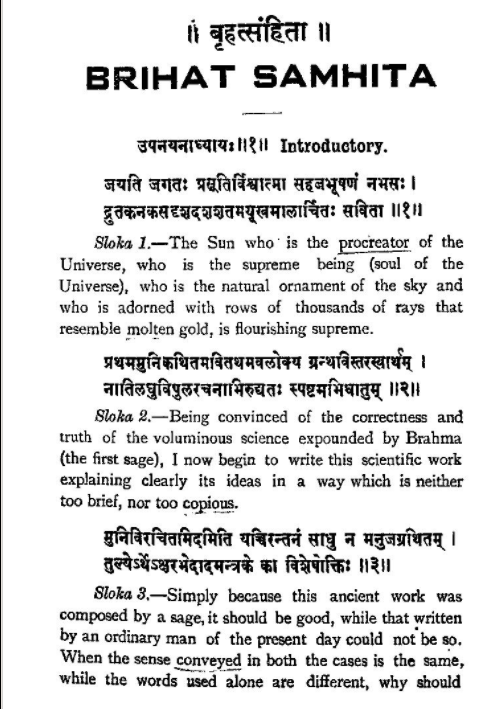

The point is simple.
In India, science and math were never seen as an anti-thesis to religious belief.
Creation myths existed & were revered.
At the same time, those wanting to understand "how it all came to be", strived in their pursuit of knowledge.
In India, science and math were never seen as an anti-thesis to religious belief.
Creation myths existed & were revered.
At the same time, those wanting to understand "how it all came to be", strived in their pursuit of knowledge.
This pursuit was never divorced from the belief systems, and in fact, found ample support in the "seeking" nature of belief systems themselves.
Religion and beliefs never limited the Indian seekers from attempting to understand natural phenomena from a scientific perspective.
Religion and beliefs never limited the Indian seekers from attempting to understand natural phenomena from a scientific perspective.
Like Plato's ideal of a philosopher-king, in whom would be found both philosophical knowledge and political skill, India had its scientist-sages, who could pursue science while still being rooted in religion.
Belief in and acknowledgement of a divine power went hand in hand with understanding the functioning of the world created by said divine power.
Remember this?
Remember this?
https://twitter.com/jeysundhar_d/status/1472596807737823239
Andal thanks Narayana for rain, sees rain as a blessing of the Gods, but also reveals an understanding of how rain is produced through the water cycle.
This was possible because the natural phenomenon had already been studied and understood.
This was possible because the natural phenomenon had already been studied and understood.
Speaking of which, the belief in rain being a blessing of the Gods, did not lead to an expectation that it would rain any time the fields needed water.
No!
People thanked Gods for the rain, but built tanks to store that water.
No!
People thanked Gods for the rain, but built tanks to store that water.
The Cholas built hundreds of temples, small and big, but their irrigation works have stood the test of time just as much as the temples have.
Case in point: The mighty Madhurantakam lake
Case in point: The mighty Madhurantakam lake

To conclude, belief in Gods, or a divine power, didn't adversely affect people of science/tech or even policymaking,in the Indian context.
It enabled them to strive harder, in pursuit of superior insights in chosen line of work, while always having the infinite divine in mind.
It enabled them to strive harder, in pursuit of superior insights in chosen line of work, while always having the infinite divine in mind.
• • •
Missing some Tweet in this thread? You can try to
force a refresh



